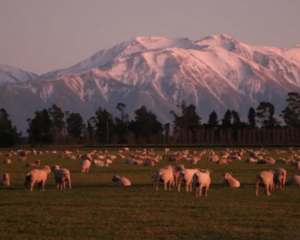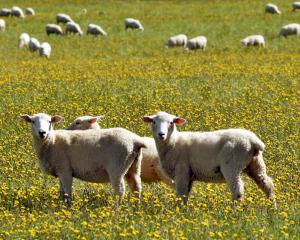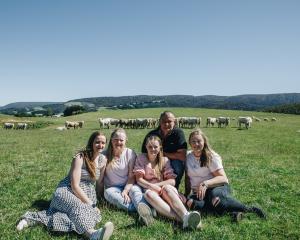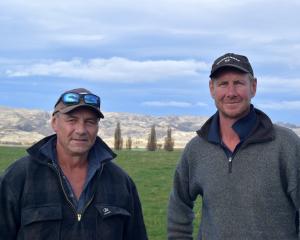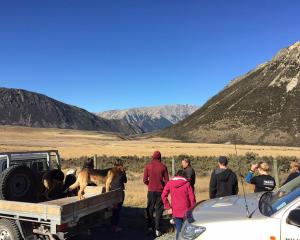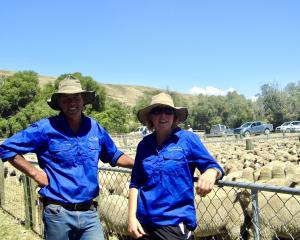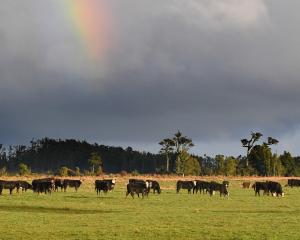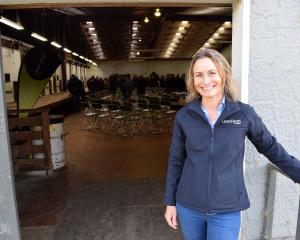A new report shows new and proposed environmental regulations are creating a significant financial burden on sheep and beef farmers in Otago and Southland.
Beef + Lamb New Zealand commissioned the report "Cumulative Impact of Government Policy on New Zealand Sheep and Beef Farms" and released it late last month.
Over the past six years, the New Zealand government had introduced more than 20 new regulations which had directly affected agriculture, primarily in the areas of climate change, freshwater and biodiversity, the report said.
The report set out the one-off opportunity and direct costs of central and local government policies and initiatives on four sheep and beef farms in New Zealand, including a fourth-generation 486ha finishing farm in Southland and a 3600ha high-country station in North Otago.
The Southland farm had not grazed dairy cattle since the introduction of a reference period for land use intensification rules for five years ending July 2019.
Consequently, the farm had a potential loss in value of up to $2.9 million because they did not graze dairy or dairy-support animals during the reference period.
Ideally, dairy cows would be wintered on the farm in lieu of bulls in some seasons.
Consents would be needed to graze dairy cattle and for winter grazing, which would each cost about $10,000 for a 5-year period in Southland.
New and proposed environmental rules also had another $34,000 in opportunity costs and about $11,000 in direct costs on the Southland farm.
The farm would likely be impacted by the National Policy Statement for Indigenous Biodiversity as it had 50ha of QEII bush, which was considered a significant natural area and could impact the amount of land which could be grazed around it.
The report stated the farm was a perfect example of a business doing the right thing for the environment for a long time, which was now being penalised because of a grandparenting system that enabled high-emitters to continue at high levels but severely restricted low-emitters.
Regulations and the pace of change they had experienced had led the farm owners to re-consider their succession plans for their children.
"They don’t know if they will still be farming in 10 years," the report stated.
The North Otago station faced a one-off opportunity cost of $35 million, a potential loss of future development income, due to local council rules around the subdivision of 700ha of lake and canal front land.
The station also had one-off direct costs of $255,000 including $45,000 for a pine tree consent application, $50,000 in subdivision consents and a 12.5% share of the $1 million failed Benmore Irrigation consent application.
A tenure review process between the station and the Crown and the Department of Conservation resulted in a significant area of land being surrendered with the understanding that remaining land could be developed and improved.
Over time it had become clear that this would not be the case and the farm had been subject to many new rules which had limited production and potential profits.
Under the National Environmental Standards for Freshwater, the station needed to install stream-level monitoring equipment, which cost $10,000 and the measuring and reporting of water-use cost another $10,000.
The report stated the impact of policies on the station had already been significant.
"Given the challenges the farmers have faced between having the Benmore Irrigation scheme consent denied, the challenges in applying for afforestation consents and subdivision consents, the farmers have mounting frustrations."
The station owners’ key frustrations lay in any development being stifled and the amount of doubling up that was required.
However, they believed freshwater farm plans were a proactive and productive way forward.
"Farm plans are a really important tool. They need to be live and fit for purpose", the station owner said.
Although costly to set up and likely to come with ongoing costs, they believed the plans gave farmers opportunity to have input into the future of their farm.
Once signed off, it was hoped the farm plan became a reference document and removed ongoing consenting costs.
BLNZ chief executive Sam McIvor said the combination of the rules and the cost of implementation threatened farms’ ongoing financial viability.
The report reinforced BLNZ’s call for the next government to press pause on rules and review current or proposed rules to ensure they were fit for purpose without adding unnecessary costs, and undertake detailed analysis of the cumulative impact of its reform agenda.
BLNZ board chairwoman Kate Acland said farmers acknowledged ongoing investment in environmental improvements was needed but that investment needed to be targeted at proven actions with measurable impacts.
"Instead, we have a range of one-size-fits-all rules that are simply imposing significant cost without clear benefits," Ms Acland said.


